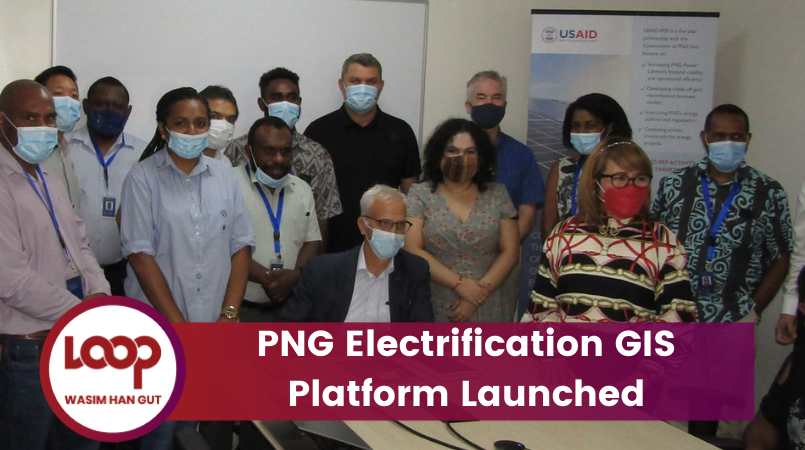
The United States Agency for International Development (USAID) launched an online Platform called the PNG Electrification Global Information System (GIS) that will support 70% of Electrification in PNG by the year 2030.
The U.S. government launched the PNG Electrification GIS platform to assist off-grid energy companies in identifying potential mini-grid sites and areas for distributing stand-alone solar products.
The platform is an interactive mapping platform used to access hundreds of indicators relating to local populations and communities to support stakeholders working on electrification in PNG, and was developed by the PNG Electrification Partnership (USAID-PEP).
The USAID Deputy Mission Director for Pacific Islands and Mongolia, Sean Callahan, officially launched the platform during his visit to PNG. This initial launch will give several hundred users in the electrification sector access to the platform.
“USAID is pleased to be a partner with stakeholders to bring electricity to rural Papua New Guinea. This innovative, data-based approach will provide our off-grid partners with live, up-to-date information they need to further bring electrification to rural communities,” said Deputy Mission Director Callahan.
The USAID-PEP Activity is a five-year, $57 million USD project partnership with the PNG government to advance the country’s journey to self-reliance by contributing to the goal of connecting 70 percent of PNG’s population to electricity by 2030.
USAID-PEP supports PNG Power Limited and in order to accomplish this goal it develops viable off-grid electrification models, strengthens PNG’s energy regulator and catalyzes private investment for energy projects.
This tool will better enable public and private investments to provide electricity to provincial centers, island communities, and other remote populations.
USAID’s work supports the joint partnership among the United States, Papua New Guinea, Australia, Japan, and New Zealand to support PNG’s electrification goals.
